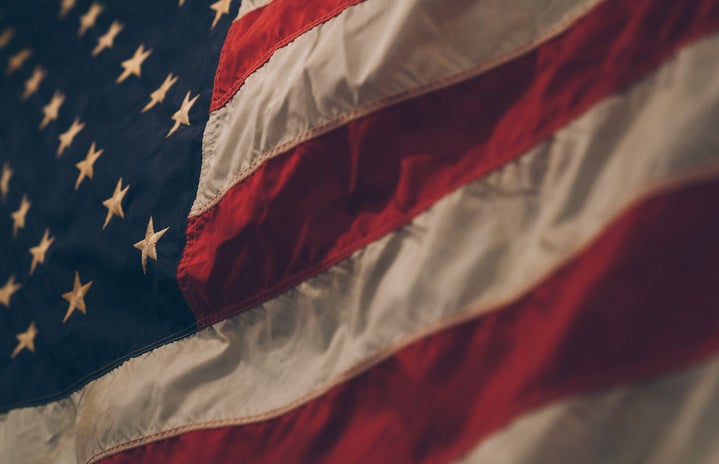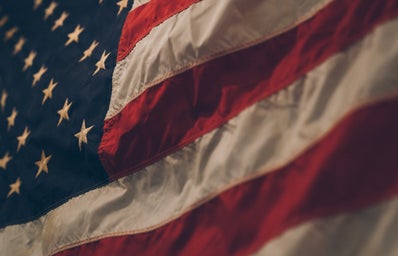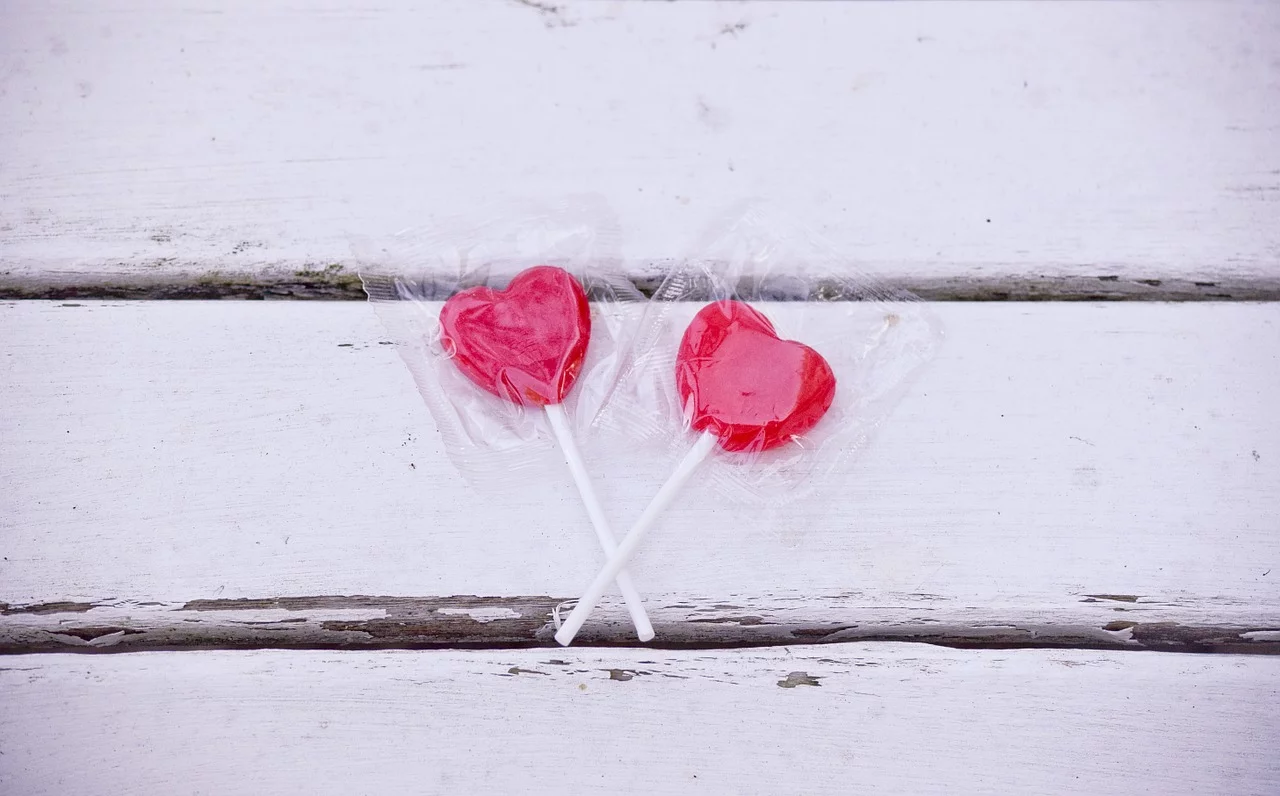Who first flutters across your mind when you hear the name Lana Del Rey? Perhaps it’s the First Lady, dripping in pearls, drowning in valium, dreaming up suicide on the golf course. Perhaps it’s the queen of the gas-station, slumped on the curb in an exhaust miasma, gun under her arm, cherry sucker between her teeth. Maybe you see the diplomat’s mistress sloped over the bar, maybe the waitress hopping on the back of her boyfriend’s Harley. Possibly a heroin-addled hooker, polka-dots peppering her skirt and the nooks of her elbows, side-walk gravel puncturing her knees. Regardless of interpretation, it’s clear that Lana embodies multitudes, each persona connected by one simple trait: submission to the American Dream.
I select this noun ‘submission’ because her discography is preoccupied with romance, most often depicting relationships that are somehow fraught. Submitting to her lover, each Lana-ified figure is submitting also to capitalism, to consumerism, and to her country. Addressing the titular National Anthem, our speaker pleads with her paramour to “Tell me I’m your national anthem”, repeating “Money is the anthem of success”, gazing into the “Red, white” and “blue” sky. This piece is overtly patriotic, merely one example of the plethora of Lana’s songs connoting nationalist sentiment. However, I assert that such signifiers are harnessed in order to be undercut. For instance, the metaphor “Holding me for ransom” may be camouflaged amidst ecstatic vocals and euphoric strings, but subtly destabilises the relationship’s portrayal. As Nicole Rafiee observes, Lana Del Rey might be July 4th personified, but it’s up to us to decide whether she must then also personify January 6th.
Money truly is the anthem of successful liaisons within Lana’s music. In Million Dollar Man, a speaker asks “Why is my heart broke?”; in Arcadia, the female body merges courtly-sonnet-style with American land, sexual congress fusing with property law; in 1949, the speaker embarks on a US road-trip, presenting her guardian with a shopping-list. Transactional language spills forth into encounters; sexuality within Americana is packaged up with capitalistic consumption. In Cola, a brand penetrates as intimately as possible, the patron’s “p*ssy tastes like Pepsi Cola.” In the same song, we hear “I fall asleep in an American flag” and “I pledge allegiance to my dad.” Evidently, consumeristic courtship is geographically located, and the looming masculine, whether prince-charming, patriarchal, presidential, even preternatural, conveys something more insidious than the individual. My third example, 1949, propagates Lana’s controversial romanticisation of Lolita. There’s no disputing the consequences of this, the hellish internet crevices it has spawned (pro-ana Tumblr, I’m looking at you). Nonetheless, Lana uses this literary gateway to expose America’s dirtiest little secret. An older, more powerful man subdues a naive girl-child with tacky plastic wrapping, boiled sweets, cheap offcuts, so that he may perversely exploit her. Sounds familiar? It should. Especially when the President Elect has started dishing out merchandise.
As this tune’s title implies, Lana’s vision is distinctly nostalgic. She has a tendency to linger upon mid-1900s imagery, perhaps desiring to make America great again. I mean, I assume we’ve all seen the Video Games film. Aside from her music popularising the ‘coquette’ subculture, the ‘old money look’, too, has crashed its Aston Martin into the mainstream. Glamourising conservatism, blatantly ignoring past oppressions, endorsing the plantation, normalising obscene amounts of inherited wealth – these statements barely breach the arsenic swimming-pool of this aesthetic. Actually, there isn’t really any ‘old money’ in America. The USA is a newborn nation. Facades of established aristocracy are exactly the superficial rhinestone glitter that Lana seems to tease out poetically. Returning to my introductory figures, we might discern that she occupies simultaneously the space of the “trailer-park”, and of the “country club”. Partially, this is her appeal to Republican constituents, able to traverse “county lines” between working and uppermost classes.

Yearning for a faded age naturally comes hand-in-hand with yearning for faded gender norms. You knew it was coming. We need to discuss Tradwives. Contentiously, Lana Del Rey announced “I am not a feminist”, explaining, “there has to be a space in feminism for women who look and act like me”. One might say there’s family resemblance between this rhetoric and that of the delightful Hannah Davis, or at least that we can totally imagine Nara Smith cooking cherry pie to God Bless America – And All The Beautiful Women In It. And I can’t even face discussing Mormonism right now (let me simply direct you to Sweet). It goes without saying that this alone is beyond problematic, but it’s rendered especially outrageous by Lana’s prefacing her statements by listing female artists of colour who, she feels, can sing about “being sexy, wearing no clothes, f*cking” without backlash. Incontestably, this is steeped in privilege and ignorance – Lana’s vintage femininity is evidently pretty white. However, we might interrogate songs like Sweet further, observing how they subvert their own messaging. The speaker eerily notes she has “things to do like nothing at all.” We discover How To Disappear, crushing your future into sugar-dusting on a husband’s birthday cake.

Regardless, rumoured alignment with anti-feminists, or anti-maskers, doesn’t necessarily align her with the Republican horde. She has implied that Donald Trump is a sociopathic narcissist, calling his victory a “loss for the country”. Lana Del Rey’s American dream is the “soft decay” of Heroin, the corrupting of National Anthem’s patriotic colours into “red, blue, and yellow” by the time we get to God Knows I Tried. There’s a kind of summertime sadness to its fading hues; the flag shudders through autumn’s first chill. All her figures are faltering Southern Belles (RIP Blanche DuBois, you would’ve loved Without You), sighing out their Swan Song. Simultaneously, earlier songs paint a picture of the American dream rotting like trash in the sun’s feverish eleventh hour. They’re final stands of youth and passion, frantically protesting the dream’s ephemerality, revving engines louder than the terrible truth, riding away, trying to outrun it. Lana’s patriotism diverges from MAGA nationalism by celebrating an Arcadia, an American paradise that doesn’t actually exist and never has. In Looking for America, Lana explains that she’s “still looking for my own version of America. One without the gun, where the flag can freely fly. No bombs in the sky, only fireworks when you and I collide.”






